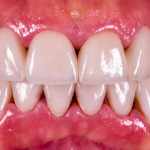You stay home, burrow in blankets, and try to be as comfortable as you can.
You reach out for that drink, looking forward to a refreshing treat.
Then the coughing fit starts again.
Table of Contents
Who let the dogs out?
Coughing is the body’s natural reaction to irritants in the throat or lungs. When a foreign object like food has gone down the wrong pipe, people cough to dislodge it and ease it out. When irritants like smoke, dust, or even pollen are inhaled, these make the airways itch and people reflexively cough. These are common enough occurrences that make people clear their throats by coughing.
However, there are times when bacteria or viruses attack the body and cause an infection in the respiratory system. This can lead to prolonged coughing and will need a physician’s expert advice on how to alleviate the barking bouts.
Here are some common causes of cough:
- Allergies like hay fever or allergic rhinitis
- Flare-ups of existing conditions like asthma or chronic bronchitis
- Gastroesophageal Reflux Disease (GERD)
- Infections like acute bronchitis or pneumonia
- Medications like ACE inhibitors used to manage blood pressure
- Postnasal drip
- Smoking
In some rare cases, coughs can be a symptom of an underlying illness such as:
- Cystic fibrosis. This is an inherited condition where a defective gene leads the body to produce sticky and thick secretions. These secretions then block passageways that cause severe damage to the lungs, digestive system, and other body organs.
- Lung cancer
- Heart failure
Depending on the cause, coughs can be dry or wet. Dry cough usually has a tickly feeling at the back of the throat and leads to a persistent urge to cough. Wet coughs, otherwise known as chesty coughs, are more phlegmatic, meaning there is an excess production of sputum that leads to coughing.
Depending on the cause, chesty cough patients usually have the following chesty cough symptoms:
- Shortness of breath or difficulty in breathing
- Sensation of liquid dripping from behind the throat
- Sore throat
- Sticky mucus are coughed out
- Wheezing
Watch What You Eat
It’s part of the self-care advice – stay home and rest when you have a cough. Aside from taking warm showers where you can inhale steam that will help with your chest congestion, cough sufferers are also advised to drink plenty of water and eat nutritious food.
Some people with cough are unaware of what food to eat and which ones to avoid, however. They reach out for their favorite snack or beverages and, unfortunately, the coughing gets rough.
Reach out for food and beverages such as the following:
- Chicken Soup: A popular comfort food, chicken soup’s warm broth will help soothe raspy throats that are raw from coughing.
- Green, leafy vegetables: These leafy greens will help provide your body with the necessary nutrients for faster recovery.
- Honey: One study showed that this traditional remedy alleviated children’s coughs, especially at night.
- Licorice Root Tea: This warm team helps in decongesting and soothing blocked airways.
- Pineapple: A mixture of enzymes called bromelain found in this tropical fruit can help loosen sticky phlegm. Fruits with high water content can also be eaten. Examples of these are peaches, pears, and watermelons.
- Probiotics: Some studies suggest that taking lactobacillus can reduce the possibility of catching colds or the flu.
- Water: Good old water helps in thinning out the mucus deposits and helps hydrate the body. Keep a glass handy to sip and soothe your throat.
Do not reach out for:
- Citrus Fruits: Citrus fruits like lemons, limes, and oranges produce citric acid that may exacerbate acid reflux and trigger a coughing bout.
- Dairy products: Though the jury is still out on this one, some studies support that dairy products such as milk and cheese can make the mucus sticky, which makes it harder to expel.
- Alcoholic and caffeinated drinks: These drinks, as well as those loaded with sugar, can dehydrate your body and cause you to cough more.
Cough, cough, and away
It is prudent to stay away from food and drinks that will make your cough worse. Go for healthy, nutritious food that won’t cause allergies or irritate your airways. Having a healthy diet will help your body recuperate faster and bring you back to the pink of health.
At the same time, you doctor may also prescribe a cough expectorant to help you get rid of excess phlegm. A range of mucus-thinning medicines in capsule, syrup, or tablet form are available to help you breathe comfortably and get rid of stubborn chesty cough.







